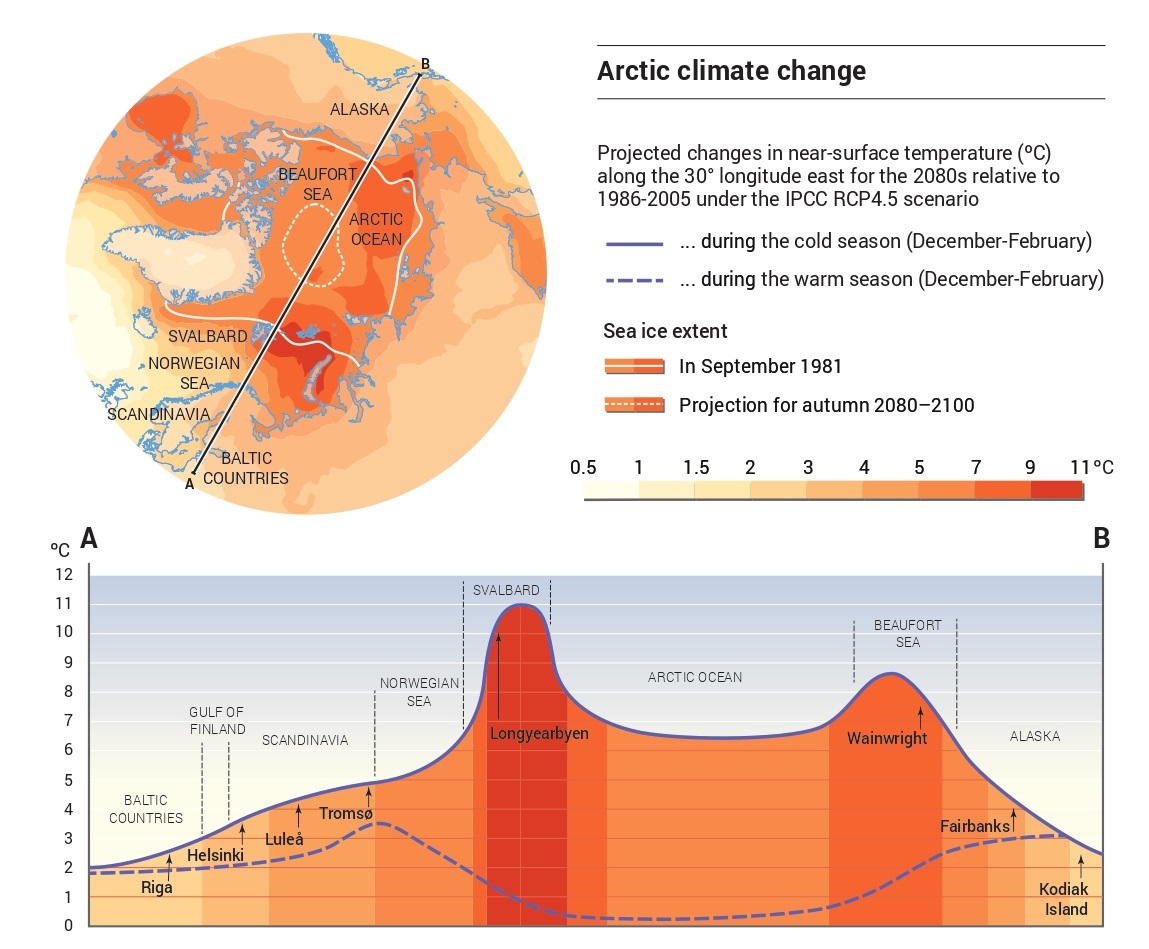March 20, 2019
Scholars have now admitted that the humanity cannot stop the temperature rise in the Arctic. A new document by the UN Commission showed that even if the humanity completely stops carbon emissions tomorrow, by the end of the century the temperature of the Arctic will still rise by five degrees. The amount of emitted greenhouse gases is so much that there is simply no opportunity to avoid the consequences.
 Even pursuant to the Paris Agreement, the results of the studies show that by 2050, winter temperatures in the Arctic would rise by three degrees as minimum, and by 2080 - five to nine degrees compared to pre-industrial levels. The Arctic area is some highest point where climate changes are is most characteristic, however, this does not mean that the rest of the world can relax. When the top of the planet starts melting, it will directly affect the entire population of the Earth.
Even pursuant to the Paris Agreement, the results of the studies show that by 2050, winter temperatures in the Arctic would rise by three degrees as minimum, and by 2080 - five to nine degrees compared to pre-industrial levels. The Arctic area is some highest point where climate changes are is most characteristic, however, this does not mean that the rest of the world can relax. When the top of the planet starts melting, it will directly affect the entire population of the Earth.
There exist many studies that allow assuming that climate changes in the Arctic region would cause dangerous rise in the sea-level all over the world, provoking flooding of coastal areas, erosion, and bringing enormous damage to buildings and infrastructure. It will also turn ecosystems upside down, contaminate drinking water and lead to mass migration of population.
"What happens in the Arctic does not stay in the Arctic. We have science – now we need more urgent actions to be taken on climate to avoid critical watershed points that could be even more disastrous to our planet than we had previously thought," says Joyce Msuya, acting Executive Director of the United Nations Environment Programme.
 The worst part of the problem is that the expected changes will devastate the regions, which is already devastated region as it is. Since 1979, as the studies have shown, the Arctic has lost about 40 per cent of the ice and that the remaining ice is thinner and more vulnerable than ever before. Some climate models even predict that in the summer of 2030, the Arctic ice cap could disappear completely.
The worst part of the problem is that the expected changes will devastate the regions, which is already devastated region as it is. Since 1979, as the studies have shown, the Arctic has lost about 40 per cent of the ice and that the remaining ice is thinner and more vulnerable than ever before. Some climate models even predict that in the summer of 2030, the Arctic ice cap could disappear completely.
Scientists argue that even if the Paris Climate Agreement is implemented, it is expected that the Arctic's permafrost would reduce by additional 45 per cent releasing billions of tons of carbon and methane into the atmosphere. This will result in even warmer temperatures, which in turn, will lead to melting more and more ice. The consequences could include more frequent forest fires, loss of habitat for animals and damage to infrastructure.
Another study showed that by 2050, permafrost melting could cause threat to four million people and about 70 per cent of today's Arctic infrastructure - the consequences would occur in dominoes effect.
"The pressing need for achieving the Paris Climate Agreement goals is clearly evident in the example of the Arctic being one of the most vulnerable and rapidly changing regions. It is necessary to significantly reduce emissions of greenhouse gases, carbon and other hazardous and polluting substances around the world in the very short term," says Kimmo Tiilikainen, the Minister of Environment, Energy and Housing of Finland.
Sources:
https://naked-science.ru/article/sci/uchenye-priznali-chto-chelovechestvo
Translated into English by Muhiddin Ganiev